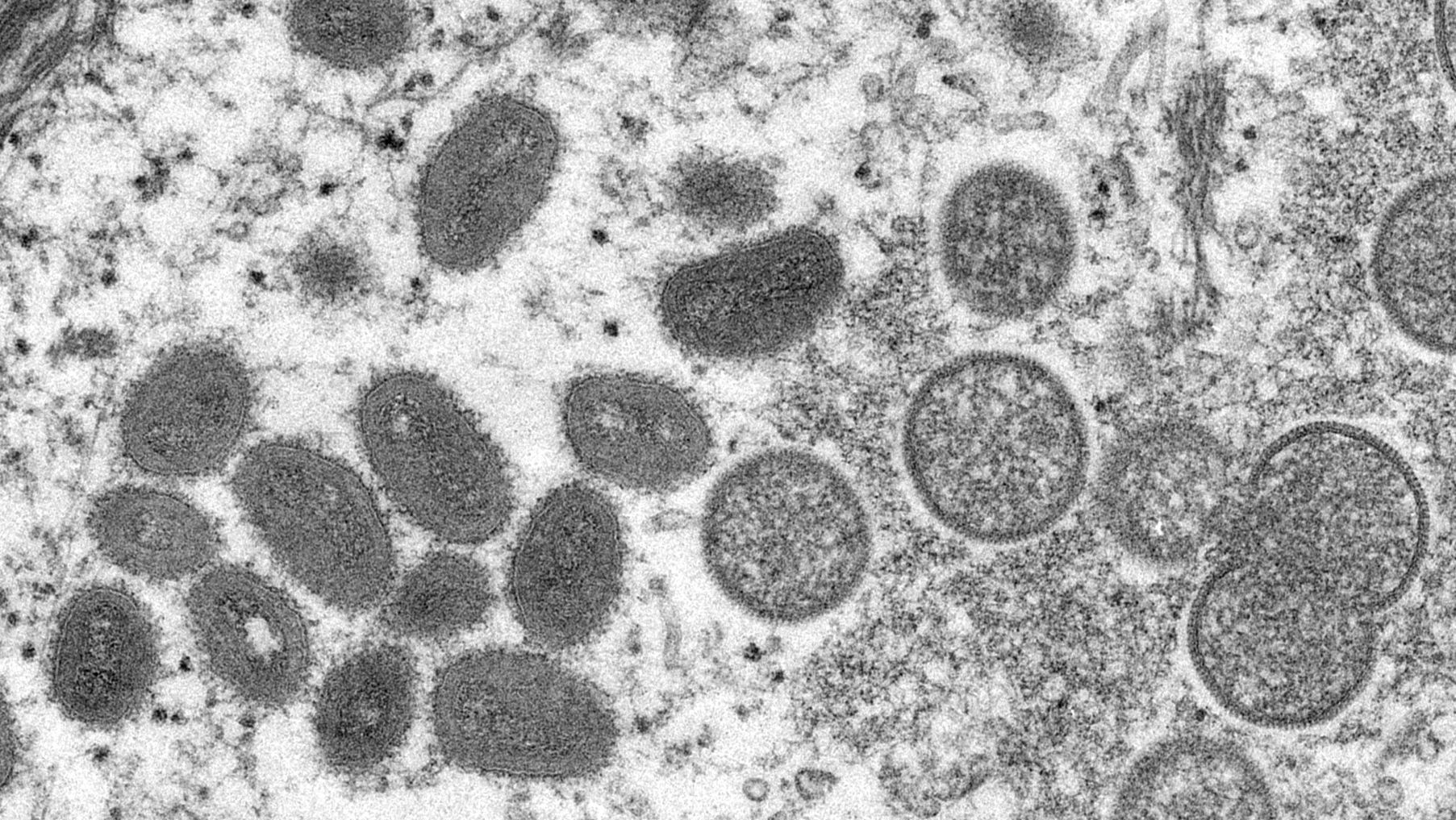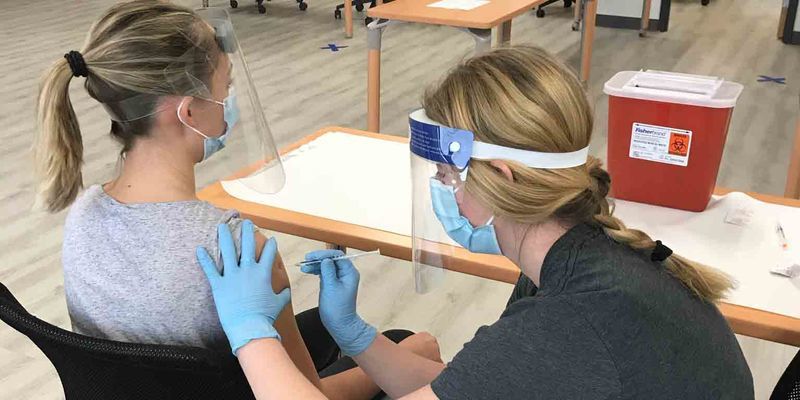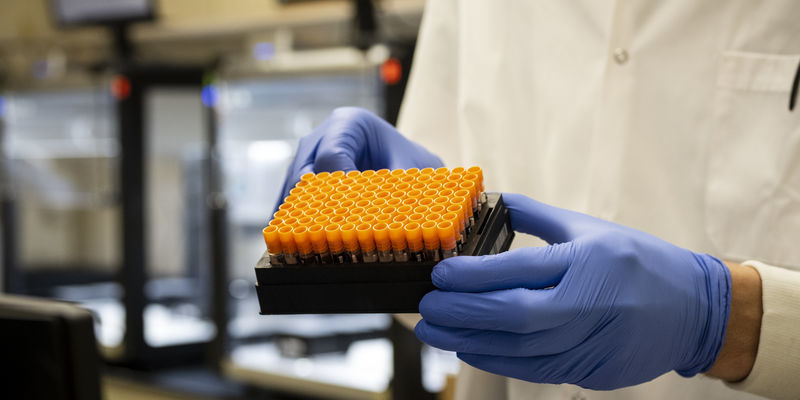What to know about monkeypox
Student Health Services is equipped to provide assistance and information to the Temple community in the wake of the recent monkeypox outbreak.

As of Aug. 3, there are 6,326 confirmed cases of monkeypox in the United States. Domestic outbreak of monkeypox is increasing, but not yet widespread. Still, it is important for the Temple community to stay educated on monkeypox risk factors, modes of transmission, preventative measures and treatment options available for infected individuals.
Student Health Services will be involved with the university’s efforts to provide information and facilitate testing services and treatment to the Temple community. Temple students and their family members, faculty and staff are also encouraged to regularly check the CDC and city of Philadelphia's websites for updates related to the monkeypox virus.
Below is a list of frequently asked questions about monkeypox—the answers may be helpful in understanding what the disease is, how it spreads, how to get it evaluated and how to seek treatment.
What is monkeypox?
According to the CDC website, monkeypox is a rare disease caused by infection with the monkeypox virus. Monkeypox symptoms are similar to smallpox symptoms, but milder. Infected individuals will commonly develop a rash with skin lesions. The rash or lesions may be accompanied by other, flu-like symptoms, such as a fever. Monkeypox is rarely fatal.
How does monkeypox spread?
Monkeypox can be spread to anyone through close, personal, skin-to-skin contact. It is not respiratory and cannot be spread at a distance. While the virus is not considered a sexually transimtted infection, it is possible for it to be spread through forms of intimate contact, including sex.
The CDC lists the following modes of transmission for the monkeypox virus:
- Direct contact with monkeypox rash, scabs or body fluids from a person with monkeypox.
- Touching objects, fabrics (clothing, bedding or towels) and surfaces that have been used by someone with monkeypox.
- Contact with respiratory secretions.
- Intimate contact, such as sex, kissing and prolonged face-to-face contact with a person with monkeypox.
Monkeypox can be spread by someone as soon as they have a fever, feel unwell or have a rash or lesion. Infected individuals can continue to spread monkeypox until the lesions have scabbed over, fallen off and new skin has grown back. This can take up to a month.
How big of a risk is monkeypox?
The overall risk to the U.S. public is low. The medical community has already developed testing methods, treatment options and a vaccine for monkeypox. As of Aug. 2, the CDC has reported 170 cases of monkeypox in Pennsylvania, although the actual number of cases is likely higher. While this monkeypox outbreak has largely affected men who have sex with men, the disease can be spread to and by anyone.
What are the symptoms of monkeypox?
Monkeypox symptoms may include:
- a rash that may look like hard pimples or blisters; the rash will go through several stages, including scabs, before healing, and may be painful or itchy;
- fever;
- headache;
- muscle aches and backache;
- swollen lymph nodes;
- chills;
- exhaustion; and
- respiratory symptoms (e.g., sore throat, nasal congestion or cough).
Infected individuals may experience any combination of symptoms, however most people with monkeypox will get a rash. The symptoms usually start within three weeks of exposure to the virus. If someone develops flu-like symptoms, they will usually develop a rash one–four days later. The illness typically lasts two–four weeks.
Is there a vaccine for monkeypox?
Yes, a monkeypox vaccine called JYNNEOS is available. The JYNNEOS vaccine is administered in two doses at least four weeks apart. Philadelphia’s vaccine supply is very limited at this time, and vaccine appointments are only being made for highest risk individuals who have been exposed to the virus. As vaccine supply increases more appointments will be made available. The Philadelphia Department of Public Health’s call center can help determine a person’s eligibility for the vaccine. They can be reached at 215-685-5488. More information about monkeypox vaccine supply in Philadelphia is available on the city’s website.
Are there treatment options for monkeypox?
Yes. Since the monkeypox and smallpox viruses are genetically similar, antiviral drugs and vaccines developed to protect against smallpox may be used to prevent and treat monkeypox virus infections. The antiviral drug TPOXX may be recommended for people who are more likely to get severely ill, like patients with weakened immune systems. Student Health Services can work with the Philadelphia Department of Public Health to determine if TPOXX is appropriate.
What should I do if I have monkeypox symptoms?
Student Health Services can facilitate monkeypox assessments and treatment options in collaboration with the city if necessary. Most primary care providers can also provide monkeypox testing. Individuals without a healthcare provider can visit an urgent care facility or use findahealthcenter.hrsa.gov to find a public health clinic.
Individuals experiencing monkeypox symptoms or who believe they have been exposed to someone with the virus should avoid close contact (including intimate physical contact) with others until they have been examined by a healthcare provider. Individuals awaiting monkeypox test results should follow the same precautions.
What should I do if I think I’ve been exposed to monkeypox?
Philadelphia is scheduling vaccine appointments for high-risk individuals who have been exposed to monkeypox. It is important to receive the vaccine as soon as possible after being exposed. If you believe you’ve been exposed you should immediately call the Philadelphia Health Department’s call center at 215-685-5488, or visit Student Health Services.
What can I do to reduce the risk of getting monkeypox?
Stay informed on all updates related to the virus provided by the CDC and the city of Philadelphia’s website. Avoid close contact with people who have a rash that looks like monkeypox, and avoid contact with objects and materials that a person with monkeypox has used. Wash your hands often with soap and water or use an alcohol-based hand sanitizer, especially before eating or touching your face and after you use the bathroom. The CDC also provides information about lowering the risk of getting monkeypox during sex.


